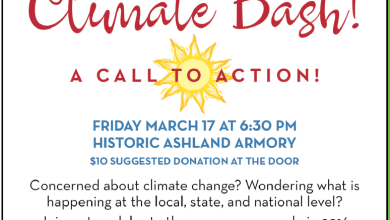Tackling Climate Change from the Ground Up
The City of Ashland recently finalized its Climate and Energy Action Plan, which includes efforts to reduce greenhouse gas pollution and strategies to build local climate resilience.
Despite its green ethic, Ashland struggled to determine the best way to approach climate change locally. What tools are most useful given our situation? What data is most appropriate? What process should we follow? How much engagement should we do?
Ashland isn’t alone. This conversation is happening all across the country as local leaders come to grips with the very real threat that climate change presents to their communities.
Our ClimateWise® team has been working for 10 years to develop a climate resilience planning framework that protects nature and takes care of all people in a community, especially those who are already disadvantaged. We call it Whole Community Resilience. With that framework in place, we recently turned our attention to making sure that when local leaders look for help, they can find it easily and have confidence that the choices they are making are putting their communities on the path toward real climate resilience.
Two years ago, the Geos Institute and Climate Solutions University began talking with others in the climate resilience field about how to scale high quality climate services to meet quickly growing demand by local governments.
There are thousands of tools, frameworks, and data sources available for local communities. Just google “climate resilience” or “climate adaptation” and see how many hits you get. Then imagine that your job is to create a climate resilience plan for your community. How would you know which tool to use? What about the data? What if you had a question? Is there anyone to call?
Soon that information will be available – and there will be someone to call. The early conversations in the climate resilience field have turned into a working group of climate resilience experts from government agencies, academic institutions, for-profit and nonprofit consultants, and local government staff. Our task: design and build a nationwide system of climate resilience services so that local leaders who recognize the threat of climate change can get effective and affordable help.
Our ClimateWise® team is coordinating the first meeting of the working group this June in Seattle. It will be followed by a series of design workshops with the goal of implementation beginning by early 2018.
The new administration has made it clear that we have to lead this ourselves – at least for the time being. This June the work begins. Visit www.climatewise.org to learn more.
Tonya Graham, Executive Director


